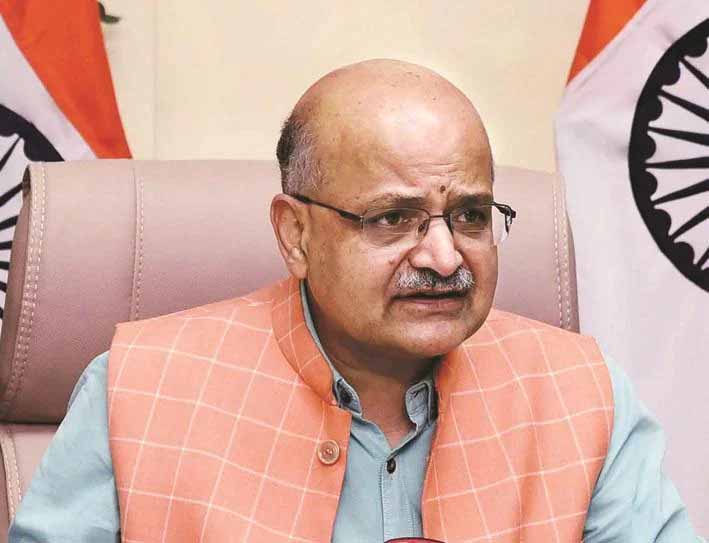NEW DELHI, Feb 21: NITI Aayog CEO BVR Subrahmanyam stated on Friday that tariffs do not safeguard any country, and it is essential for India to reduce its tariffs for its own benefit, regardless of external pressures.
While speaking at the 69th Foundation Day of the All India Management Association (AIMA), Subrahmanyam emphasized that prioritizing global openness is crucial for India’s aspirations to become a developed nation.
He advocated for the completion of trade agreements with the European Union, the United Kingdom, and other major economies as a means to facilitate tariff reductions.
Subrahmanyam highlighted that deregulating at both the central and state levels is vital for integrating India into global supply chains.
He noted that while there is growing interest in India, potential investors often explore opportunities in other countries.
The NITI Aayog CEO pointed out that countries such as Indonesia, Vietnam, and Turkey have successfully benefited from the ‘China plus one’ strategy adopted by global corporations.
He argued that building a global value chain requires more than just production-linked incentives; it also necessitates deregulation and skills development.
Subrahmanyam described the bureaucratic processes involved in business as overwhelming, which is adversely impacting micro, small, and medium enterprises (MSMEs).
He mentioned that the NITI Aayog is actively working to integrate India into global supply chains across various sectors.
Subrahmanyam revealed that the Aayog’s proposals for the electronics component supply chain are pending Cabinet approval, and it is strategizing necessary steps for the auto component, chemicals, textiles, and footwear sectors to join global supply chains.
He announced that the NITI Aayog has developed a national manufacturing mission set to launch in three months, aimed at collaborating with over 20 ministries on manufacturing policies.
In addition to manufacturing, he stated that education and agriculture should be among India’s top priorities for achieving developed nation status.
Subrahmanyam pointed out the paradox of a large population with numerous job vacancies due to a lack of relevant skills.
He proposed transforming agriculture by shifting focus from traditional crops like rice and wheat to horticulture, floriculture, dairy, and related activities.
Addressing regional disparities, he remarked that states providing quality education and business environments are becoming wealthier.
Subrahmanyam underscored the need for states to welcome enterprises from other regions, asserting that local entrepreneurs alone cannot drive state development.
“Enterprise should flow freely; restrictions will only hinder progress,” he stated.
The NITI Aayog CEO affirmed that state-rating systems effectively encourage reform.
He explained that the fiscal health index assesses states on budget management efficiency rather than merely economic size.
“Some states may promise incentives but struggle to deliver,” Subrahmanyam added.


Leave a Reply